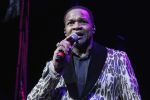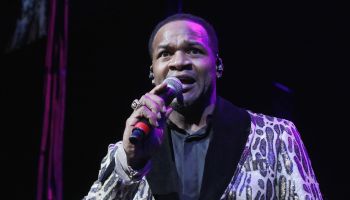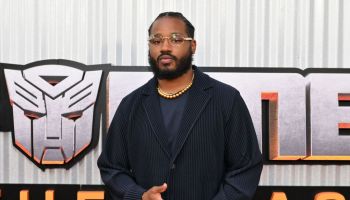Ugh, so much homework. Gotta read The Hobbit, write a dissertation about the evolution of zombies in media, and watch Season 4 of Buffy before Monday! SOURCE
RELATED::The Indestructible Smartphone: Why It Could Be Closer Than You Think!
RELATED::11 Things Everyone Thinks Are In The Bible, But Aren’t
1. Myth and Science Fiction — Centre College

Myths aren’t just ancient stories about Greek heroes and Norse gods, but contemporary tales from the likes of Tolkien, George Lucas, and the Wachowski siblings. The class compares mythological motifs from classic literature to the likes of Doctor Who and The X-Files.
2. Simpsons and Philosophy — University of California, Berkeley

After two decades and 500 episodes, The Simpsons is less a cartoon television show and more a prism reflecting the complex human condition. The class curriculum asks questions such as “Can Nietzsche’s rejection of traditional morality justify Bart’s bad behavior?”
3. The Vampire in Literature and Cinema — University of Wisconsin-Madison

Not to be confused with the modern de-fanged protagonist vampire, this class is steeped in how vampires are an illustration of the way one culture is transmitted to another. Through Bram Stoker’s classic novel and the 1922 Nosferatu, students will see how the vampire myth colored Western views of Eastern Europe as backward.
4. Exploring “Buffy the Vampire Slayer” — Portland State University

From arguing for and against Buffy as a feminist role model to the value of metaphors in the series (drunk college kids turn into Neanderthals in one episode) to the impact fans have on the direction of a series, this class covered it all.
5. Calvin & Hobbes — Oberlin College

The class explored the broad appeal and timeless reliability of the Bill Watterson comic as well as its pervasive pop-culture influence.
6. Lego Robotics — MIT
According to the online syllabus, this course “uses Legos as a fun tool to explore robotics, mechanical systems, electronics, and programming. Primarily a lab experience, this seminar provides students resources to design, build, and program functional robots constructed from Legos and a few other parts, such as motors and sensors. The class also explores other topics of interest to the students, such as digital logic, modern robotics, or artificial intelligence.”
7. Feel the Force: How to Train in the Jedi Way — Queen’s University Belfast

Considering the U.K. recognizes “Jedi” as an official religion, complete with its own church, this class was a natural next step. The class taught the core issues of the Star Wars universe such as balance, destiny, and dualism, as well as the real-life psychological techniques embodied in the Jedi Mind Trick.
8. J.R.R. Tolkien — Marquette University

One of the main repositories for Tolkien’s drawings, drafts, and writings (more than 11,000 pages), Marquette University in Wisconsin is uniquely suited for the task of teaching not only the author’s influence on modern fantasy fiction, but of his writing process.
9. Scandinavian Fantasy Worlds: Old Norse Sagas and Skyrim — Rice University

This course introduces students to fantasy as both a driving force in gamer culture and a psychological concept, and why medieval Scandinavia currently serves as the backdrop for many Anglo-American fantasy stories. Participants will read selections from Old Norse sagas as they play different quests within Skyrim, with the goal of identifying the intersections and evolving differences between the source material and the pop-culture appropriation.
10. The Science of Harry Potter — Frostburg State University

The course offered the chance to study the links between magic and science. It explored questions such as “Can antigravity research eventually produce a flying broomstick?” or “With the advancements in genetic engineering, will Fluffy the Cereberus one day be a reality?”
11. Media Genres: Zombies — University of Baltimore

As part of the Pop Culture minor, students will learn why zombies are the perfect reflection in media of what we, as a culture, are thinking at any given point. Required reading includes the novel Pride and Prejudice and Zombies and The Walking Deadgraphic novels, as well as Romero’s iconic films.
12. 21st Century Skills in Starcraft — University of Florida

According to the syllabus, the online class aims to teach “skills such as critical thinking, problem solving, resource management, and adaptive decision making. These skills are fundamental in Starcraft and therefore make the game a highly effective environment for students to analyze and take action in complex situations.” The online class is styling itself as giving students critical 21st century skills.
13. Religions of Star Trek — Muhlenberg College

The course goes into great detail of the religious issues frequently discussed in the Star Trek universe and how the show spins the tenants of actual religions to appear alien. The professor who teaches the class found analyzing religion through the lens of science fiction allowed students to put a safe distance between themselves and the often hot-button topic.
14. Science from Superheroes to Global Warming — University of California, Irvine

Much like the Harry Potter class, this online course (available to ANYONE) dives into the scientific possibility of things such as the effects of a yellow sun on an alien humanoid or if a truly invisible jet is possible.
15. South Park and Contemporary Issues — McDaniel College

Despite its reputation as a crass piece of adult pop culture, South Park has never shied from an issue, be it AIDS or euthanasia, racism or homophobia, over its long tenure. The class posits that using humor to examine a difficult topic can often lend perspective and kindle thought, giving people a way to tackle complex, contentious issues.















